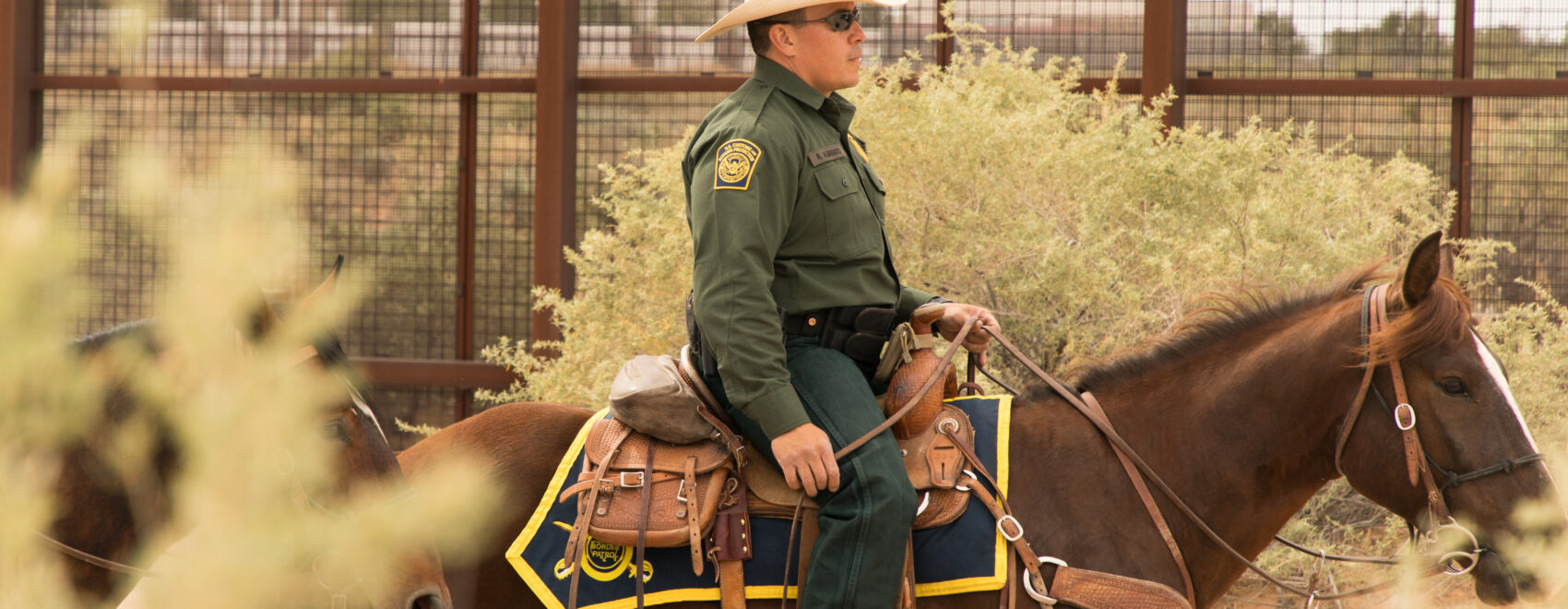View AgriLife Today article here!
Issue:
In the vast world of border protection and customs enforcement, the partnership between humans and equines plays an indispensable role. These animals are a vital component in safeguarding our nation’s borders and ensuring the security of our communities. The need to train Customs and Border Protection (CBP) and other law enforcement mounted patrol units in equine healthcare is paramount.
Equine health management training equips handlers and owners with the knowledge and skills to ensure basic care is provided to the horses and respond effectively to emergencies related to the unique environment the duo works in, empowering them to act swiftly and decisively, ultimately contributing to the overall effectiveness of CBP equine teams in safeguarding our borders.
Objective:
- Develop and implement a training program directed at raising the level of equine health management expertise of law enforcement and interested equine owners to a level consistent with a well-trained, non-veterinary medical equine professional.
- Deliver train-the-trainer program to border patrol equine patrol to improve training consistency across stations.
Value Proposition:
This project provides a sustainable and cost-effective training program that will improve equine handlers’ capacity to prevent or minimize the impacts of equine medical and trauma events. These events can result in costly medical bills and horses being unable to be utilized temporarily or permanently.
| Project Lead | Texas A&M University |
| Research Team | PI Dee Ellis, DVM, Texas A&M University, Department of Entomology Co-PI Leslie Easterwood, DVM, Texas A&M School of Veterinary Medicine & Biomedical Sciences Co-PI Glennon Mays, DVM, Texas A&M School of Veterinary Medicine & Biomedical Sciences |
| Budget | $438,770 |
| Duration | August 2024 – July 2026 |

